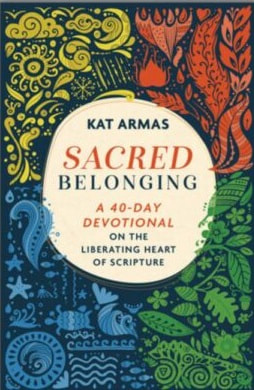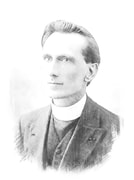Colossians 1
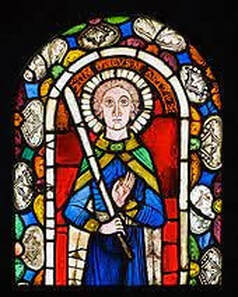
Timotheus, our brother. The other Epistles written at this time that Timothy was then in Rome. He is named six times in the address of Paul’s letters to the churches.
Timothy is mentioned in the Bible at the time of Paul’s second visit to Lystra in Anatolia, where Timothy is mentioned as a “disciple”. Paul, impressed by his “own son in the faith,” arranged that he should become his companion. Timothy was the son of a Jewess, but had not been circumcised, and Paul now ensured that this was done, according to the text, to ensure Timothy’s acceptability to the Jews. According to McGarvey Paul performed the operation “with his own hand”, but others claim this is unlikely and nowhere attested[citation needed]. He was ordained and went with Paul on his journeys through Phrygia, Galatia, Mysia, Troas, Philippi, Veria, and Corinth. His mother, Eunice, and his grandmother, Lois, are noted as eminent for their piety and faith, which indicates that they may have also been Christians. Timothy is praised by Paul for his knowledge of the Scriptures (in the 1st century mostly the Septuagint, see Development of the New Testament canon#Clement of Rome), and is said to have been acquainted with the Scriptures since childhood. Little is known about Timothy’s father; only that he was Greek.
According to later tradition, Paul consecrated Timothy as bishop of Ephesus in the year 65, where he served for 15 years. In the year 80 (though some sources place the event during the year 97, with Timothy dying at age 80), Timothy tried to halt a pagan procession of idols, ceremonies, and songs. In response to his preaching of the gospel, the angry pagans beat him, dragged him through the streets, and stoned him to death. In the 4th century, his relics were transferred to the Church of the Holy Apostles in Constantinople.
Timothy is mentioned in the Bible at the time of Paul’s second visit to Lystra in Anatolia, where Timothy is mentioned as a “disciple”. Paul, impressed by his “own son in the faith,” arranged that he should become his companion. Timothy was the son of a Jewess, but had not been circumcised, and Paul now ensured that this was done, according to the text, to ensure Timothy’s acceptability to the Jews. According to McGarvey Paul performed the operation “with his own hand”, but others claim this is unlikely and nowhere attested[citation needed]. He was ordained and went with Paul on his journeys through Phrygia, Galatia, Mysia, Troas, Philippi, Veria, and Corinth. His mother, Eunice, and his grandmother, Lois, are noted as eminent for their piety and faith, which indicates that they may have also been Christians. Timothy is praised by Paul for his knowledge of the Scriptures (in the 1st century mostly the Septuagint, see Development of the New Testament canon#Clement of Rome), and is said to have been acquainted with the Scriptures since childhood. Little is known about Timothy’s father; only that he was Greek.
According to later tradition, Paul consecrated Timothy as bishop of Ephesus in the year 65, where he served for 15 years. In the year 80 (though some sources place the event during the year 97, with Timothy dying at age 80), Timothy tried to halt a pagan procession of idols, ceremonies, and songs. In response to his preaching of the gospel, the angry pagans beat him, dragged him through the streets, and stoned him to death. In the 4th century, his relics were transferred to the Church of the Holy Apostles in Constantinople.
|
Colossians 1:1:
Paul, an apostle of Jesus Christ by the will of God, and Timothy our brother |
Paul begins with his name and his title, "an apostle of Christ Jesus." This is the same title Paul uses of himself in the first verses of 1 Corinthians, 2 Corinthians, Ephesians, 1 Timothy, and 2 Timothy. Paul was an apostle through the work and plan of God, not his own schemes. The idea of God's will over his life is one of Paul's common themes for his letters. This not only gives Paul authority to make his claims, it gives him reasons to endure persecution and suffering. |
The original text was written in Koine Greek. Traditionally, it is believed to have been written for the churches in Colossae and Laodicea. This letter includes a number of words not found elsewhere in Paul’s writings—and some other stylistic differences as well. As a result, some modern scholars have questioned Paul’s authorship. Personally, who wrote is somewhat irrelevant at this point, though it may have been an issue when it was sanction as authoritative and added to the rest of the books we now know as The Holy Bible .
Known as one of Paul’s Prison Letters (the others being Ephesians, Philippians and Philemon) written while he was under house arrest for two years in Rome around 60 AD. The Colossae church is unique to Paul in that it was neither planted by Paul nor ever visited by him; The church was planted through the ministry of Epaphras or Epaphroditus. Evidently, Epaphras had been saved during Paul’s three-year ministry in Ephesus and then became an evangelist among the Gentiles.
The church at Colossae was under attack from false teachers who were denigrating the deity of Jesus; they were teaching that He was not actually God. Though Paul had never been to the church itself, he addressed these issues head-on. The nature of Jesus Christ as Creator and Redeemer was nonnegotiable, so Paul wrote to them that he might bring his wisdom to bear on this difficult and trying situation. It was critical to him that this church know God in His greatness and glory, rather than in the deficient view given them by the false teachers (Colossians 1:25; 2:1–2).
--Chuck Swindoll
--Chuck Swindoll
At the time of Pauls letter (Colossians 1) to the church in Colossae, in what is present day Turkey, was a flourishing church but it experienced the same challenges that threaten many churches today. There was a mixture of religious error within as well as cultural pressure from all around which was undermining the Colossian church. Today many churches in our country have succumbed to various humanist philosophies, cultural trends, and basically outright disregard for the Bible as God’s authoritative Word for life. The unrest and uncertain atmosphere in society often invades the Church and assaults the very Gospel which is the only hope for the world.
--Nate Seton; Ocean View Baptist Church
--Nate Seton; Ocean View Baptist Church
Timotheus, our brother. The other Epistles written at this time that Timothy was then in Rome. He is named six times in the address of Paul’s letters to the churches.
Timothy is mentioned in the Bible at the time of Paul's second visit to Lystra in Anatolia, where Timothy is mentioned as a "disciple". Paul, impressed by his "own son in the faith," arranged that he should become his companion. Timothy was the son of a Jewess, but had not been circumcised, and Paul now ensured that this was done, according to the text, to ensure Timothy’s acceptability to the Jews. According to McGarvey Paul performed the operation "with his own hand", but others claim this is unlikely and nowhere attested[citation needed]. He was ordained and went with Paul on his journeys through Phrygia, Galatia, Mysia, Troas, Philippi, Veria, and Corinth. His mother, Eunice, and his grandmother, Lois, are noted as eminent for their piety and faith, which indicates that they may have also been Christians. Timothy is praised by Paul for his knowledge of the Scriptures (in the 1st century mostly the Septuagint, see Development of the New Testament canon#Clement of Rome), and is said to have been acquainted with the Scriptures since childhood. Little is known about Timothy's father; only that he was Greek.
According to later tradition, Paul consecrated Timothy as bishop of Ephesus in the year 65, where he served for 15 years. In the year 80 (though some sources place the event during the year 97, with Timothy dying at age 80), Timothy tried to halt a pagan procession of idols, ceremonies, and songs. In response to his preaching of the gospel, the angry pagans beat him, dragged him through the streets, and stoned him to death. In the 4th century, his relics were transferred to the Church of the Holy Apostles in Constantinople.
Timothy is mentioned in the Bible at the time of Paul's second visit to Lystra in Anatolia, where Timothy is mentioned as a "disciple". Paul, impressed by his "own son in the faith," arranged that he should become his companion. Timothy was the son of a Jewess, but had not been circumcised, and Paul now ensured that this was done, according to the text, to ensure Timothy’s acceptability to the Jews. According to McGarvey Paul performed the operation "with his own hand", but others claim this is unlikely and nowhere attested[citation needed]. He was ordained and went with Paul on his journeys through Phrygia, Galatia, Mysia, Troas, Philippi, Veria, and Corinth. His mother, Eunice, and his grandmother, Lois, are noted as eminent for their piety and faith, which indicates that they may have also been Christians. Timothy is praised by Paul for his knowledge of the Scriptures (in the 1st century mostly the Septuagint, see Development of the New Testament canon#Clement of Rome), and is said to have been acquainted with the Scriptures since childhood. Little is known about Timothy's father; only that he was Greek.
According to later tradition, Paul consecrated Timothy as bishop of Ephesus in the year 65, where he served for 15 years. In the year 80 (though some sources place the event during the year 97, with Timothy dying at age 80), Timothy tried to halt a pagan procession of idols, ceremonies, and songs. In response to his preaching of the gospel, the angry pagans beat him, dragged him through the streets, and stoned him to death. In the 4th century, his relics were transferred to the Church of the Holy Apostles in Constantinople.
"and Timothy our brother"; who joined with the apostle in this epistle, and whom he calls a "brother"; partly because of the Christian relation he stood in to him, and them, they being all brethren, children of the same Father, partakers of the same grace of regeneration, belonging to the same family, and so should own and love one another as brethren; and partly and chiefly because of his being a brother, companion, fellow soldier, and a fellow labourer in the Gospel. He mentions him, either because he was known unto them, or that he might be so; and to show the agreement there was between them in the doctrine of Christ, which might have the greater weight with them to abide in it.
|
Colossians 1:2:
2To the saints and faithful brethren in Christ who are in Colosse: Grace to you and peace from God our Father and the Lord Jesus Christ. |
This letter was written to a specific audience: the faithful brothers and sisters in Christ and in this case the ones in Colossae. Not to the world. Grace must always precede peace. |
“The issue is not whether we will live in Colossae or not. We must live there or Cincinnati or Centerville or wherever it is we have been appointed to live. The question is whether we will live in Christ or not. Will I become a bona-fide in-Christ-one? This is the awakening we must have. This begins to happen when my attention turns from my disgruntlement with the insanity around me to my discontent with the incongruity within me. When this awakening becomes greater and greater within us it leads to the awakening becoming greater and greater around us.”
JD Walt; Seedbed
JD Walt; Seedbed
|
Colossians 1:3-6:
3We give thanks to the God and Father of our Lord Jesus Christ, praying always for you, 4since we heard of your faith in Christ Jesus and of your love for all the saints; 5because of the hope which is laid up for you in heaven, of which you heard before in the word of the truth of the gospel, 6which has come to you, as it has also in all the world, and is bringing forth fruit, as it is also among you since the day you heard and knew the grace of God in truth; |
Paul’s says what is happening in Colossae is fulfilling the commission in the garden and the commission Jesus gives to the Church. In the whole world, and in Colossae as one example, the gospel is bearing fruit and growing. God desires multiplication, not only numerically but also in a way that it spreads. The gospel is bearing fruit and growing as the whole world is filling up with the glory of God through the conversion of sinners and the planting of churches. It’s not just that people are saved but that people are being remade into the image of God by becoming a new person in Christ. Later Paul tells them to act differently because they are “being renewed in knowledge after the image of its creator” (Col. 3:10). They are reflections of the glory of God and should live in such a way that people get a glimpse of what God is really like and what it looks like to be an image-bearer flourishing. People in Colossae are being renewed into the image of God, and in this way the gospel is bearing fruit and growing in the whole world. Hopefully you see how multiplication through conversion and church planting in each pocket of the planet is accomplishing God’s plan for spreading out his glory over the entire world. |
Colossians 1:7-8:
7as you also learned from Epaphras, our dear fellow servant, who is a faithful minister of Christ on your behalf,
8who also declared to us your love in the Spirit.
7as you also learned from Epaphras, our dear fellow servant, who is a faithful minister of Christ on your behalf,
8who also declared to us your love in the Spirit.
|
Colossians 1:9:
For this reason also, since the day we heard of it, we have not ceased to pray for you and to ask that you may be filled with the knowledge of His will in all spiritual wisdom and understanding, |
The request that God "fill" suggests that there may be some spiritual vacuum that needs to be corrected. The filling is to be with the knowledge of God's will and not some type of speculative <em>gnosis</em> ("knowledge") so characteristic of false teachers. Wisdom (<em>sophia</em> and understanding (<em>synesis</em>) likewise are not some abstract intellectual concepts from the Greek world but attributes that God's Spirit gives |
 Adam Dooley
Adam Dooley
....we are to pray with commitment. The purpose of prayer is NOT to get our will done in heaven, but God’s will done on earth. Restricting the substance of our petitions to the will of God is key to receiving the answer we seek. Again, John reassures us, “This is the confidence which we have before Him, that, if we ask anything according to His will, He hears us (1 John 5:14).” By surrendering our desires to God’s design, we emulate the spirit of Jesus in Gethsemane as He prayed, “Not my will, but thy will be done (Matt. 26:39).”
But how can we discern God’s will in order to pray it? We know that God is willing to fill us with the knowledge of His will (Col. 1:9), but how does He do it? Holy Scripture and the Holy Spirit are the only trustworthy guides. God will not answer any prayer that contradicts His word or justifies sinful behavior (2 Tim. 3:16-17). The Bible lays down guidelines (some explicit and some implicit) for us to live by, and the Spirit of God reveals specific direction within those parameters. Those who have a submissive heart fully committed to God’s preference for their lives can pray knowing that God will always answer. E. Stanley Jones explained, “Prayer is surrender — surrender to the will of God and cooperation with that will. If I throw out a boat hook from a boat and catch hold of the shore and pull, do I pull the shore to me, or do I pull myself to the shore? Prayer is not pulling God to my will, but the aligning of my will to the will of God.”
--Adam Dooley; Kentucky Today; DOOLEY NOTED: The gift that we refuse 9.19.23
But how can we discern God’s will in order to pray it? We know that God is willing to fill us with the knowledge of His will (Col. 1:9), but how does He do it? Holy Scripture and the Holy Spirit are the only trustworthy guides. God will not answer any prayer that contradicts His word or justifies sinful behavior (2 Tim. 3:16-17). The Bible lays down guidelines (some explicit and some implicit) for us to live by, and the Spirit of God reveals specific direction within those parameters. Those who have a submissive heart fully committed to God’s preference for their lives can pray knowing that God will always answer. E. Stanley Jones explained, “Prayer is surrender — surrender to the will of God and cooperation with that will. If I throw out a boat hook from a boat and catch hold of the shore and pull, do I pull the shore to me, or do I pull myself to the shore? Prayer is not pulling God to my will, but the aligning of my will to the will of God.”
--Adam Dooley; Kentucky Today; DOOLEY NOTED: The gift that we refuse 9.19.23

Sound doctrine leads to a godly lifestyle (See 1 Tim. 6:3-4; Titus 2:1-8). Unsound doctrine or false teaching leads to lasciviousness (lawless unrestraint) (See Jude 1:4). So Paul prays for the Colossians: (1) That they ―might be filled with the knowledge of God‘s will‖ (Col. 1:9). The context (Col. 1:10) implies the moral aspect of God‘s will, His will for the conduct of our lives. (2) For wisdom and spiritual understanding (Col. 1:9). ―Wisdom‖ being the discernment of what is right, true and lasting. ―Understanding‖ being to grasp or comprehend that which is expressed by God. It is ―spiritual‖ wisdom and understanding. That which is quickened and taught by the Holy Sprit (1 Jn 2:20, 27). (3) The result of ―spiritual wisdom and understanding in the knowledge of God‘s will‖ is a ―walk worthy of the Lord,‖ in other words, a life lived in honor to the Lord, pleasing Him in every way (Col. 1:10). Paul was exposing a heresy in the Colossian church that was similar to Gnosticism. Gnostics valued the accumulation of knowledge, but Paul pointed out that knowledge in itself is empty. To be worth anything it must lead to a changed life and right living. Knowledge is not merely to be accumulated; it should give us direction for living (Life Application Bible, p. 2158). ―"Walk" is the Greek word peripateo and means ―to order one‘s behavior, to conduct one‘s self.‖ Wisdom and understanding is not an end in itself. It must issue in right practice. Doctrines and ethics are for Paul inseparable (Wuest‘s Word Studies in Greek, p. 176).
--THE LETTER OF COLOSSIANS A Discipleship Program
--THE LETTER OF COLOSSIANS A Discipleship Program
|
Colossians 1:10:
10that you may walk worthy of the Lord, fully pleasing Him, being fruitful in every good work and increasing in the knowledge of God; |
|
“Christ came not to make the law void but rather to explain and enforce it, that he might render holiness more evident and raise his people to greater exercise in it than ever before. And it should be the aim and design of all Christians, for Christ’s sake as well as their own and others, that their graces may be resplendent in the holiness and universal righteousness that as the apostle directs, “they may adorn the gospel,” (Titus 2:10), and walk worthy of their relationship to God (Col. 1:10).”
-William Williams, The Danger of Not Reforming Known Evils, and Other Works,
-William Williams, The Danger of Not Reforming Known Evils, and Other Works,
|
Colossians 1:11-14:
11strengthened with all might, according to His glorious power, for all patience and longsuffering with joy; 12giving thanks to the Father who has qualified us to be partakers of the inheritance of the saints in the light. 13He has delivered us from the power of darkness and conveyed us into the kingdom of the Son of His love, 14in whom we have redemption through His blood, the forgiveness of sins. |
"It ought to be as habitual to us to thank as to ask." ~ C. H. Spurgeon "When God saves someone, He instantly bestows on that person fitness for heaven. That fitness is Christ. Nothing can improve on that. Not even a long life of obedience and service here on earth makes a person more fit for heaven than he was the day he was saved. Our title to glory is found in His blood.”" - William McDonald |

By faith we appropriate the work of Jesus that delivers us from the “domain of darkness” (Col. 1:13–14; see also Gal. 3:1–9). No matter how “good” we or our parents are, all of us are born into this world as children of Adam, cut off from blessed fellowship with God — the purpose for which He made us (Rom. 5:12–21). The Bible describes this condition of being in Adam as being in a realm of chaos, darkness, evil, and judgment — a dreadful state of misery wherein we were dead in wickedness and willing servants of the Devil (Eph. 2:1–3). There is no escape from this hopeless condition apart from divine intervention. Since nothing in us could move the Lord to save us, the fact that He graciously acted to rescue us anyway is a fact that is beyond comprehension and marvelous beyond words (Rom. 5:6–8). Once we realize how far from Him we actually were before we knew Jesus, the only response we can give is, indeed, “happiness doubled by wonder.”
Being rescued from the kingdom of darkness, we have been transferred to the “kingdom of his beloved Son” — the kingdom of light in which we have the forgiveness of sins (Col. 1:13–14; 1 John 1:5–7). --Ligonier
Being rescued from the kingdom of darkness, we have been transferred to the “kingdom of his beloved Son” — the kingdom of light in which we have the forgiveness of sins (Col. 1:13–14; 1 John 1:5–7). --Ligonier

The term for delivered here means literally to snatch from an enemy. The Amplified Version says, “The Father has delivered and drawn us to Himself.” God delivered us from sin and death when Jesus died in our place and took the punishment for our sin. We couldn't save ourselves only God could. This should cause us to give thanks!
Jesus has authority in us over the darkness. I don't have authority over the darkness apart from Jesus working and living in me. Jesus has the authority over it, and as we walk in the light, we will see power over the darkness as He works in and through us.
[SOURCE: Thankful HomeMaker]
Jesus has authority in us over the darkness. I don't have authority over the darkness apart from Jesus working and living in me. Jesus has the authority over it, and as we walk in the light, we will see power over the darkness as He works in and through us.
[SOURCE: Thankful HomeMaker]

Colossians 1:16 powers. The “thrones, dominions, principalities and powers” clearly are in reference to the spiritual creation of the vast host of heaven. The pagan world, whether of the ancient Greeks or of the modern New Agers, has always believed in angels, demons or spirit beings of various types and powers, and it is vital for us to understand that such beings do exist and can wield great influence in the visible world as well as the invisible. Even these, however, were created by Jesus Christ! Many have rebelled against Him, both men and angels, always justifying themselves by maintaining they are the products of some cosmic evolutionary process instead of creation by the eternal, transcendent God --Institute for Creation Research
---------------------
These four levels of authority (thrones, dominions, principalities, and powers) include physical and spiritual kingdoms. Of course, all physical kingdoms are inferior to Christ, but so are all spiritual forces, whether angelic or demonic. Principalities and powers were specifically mentioned in Eph 6:12 as different levels of authority in Satan's kingdom --Andrew Wommack Ministries
---------------------
These four levels of authority (thrones, dominions, principalities, and powers) include physical and spiritual kingdoms. Of course, all physical kingdoms are inferior to Christ, but so are all spiritual forces, whether angelic or demonic. Principalities and powers were specifically mentioned in Eph 6:12 as different levels of authority in Satan's kingdom --Andrew Wommack Ministries
|
For—Greek, "Because." This gives the proof that He is not included in the things created, but is the "first-begotten" before "every creature" (Col 1:15), begotten as "the Son of God's love" (Col 1:13), antecedently to all other emanations: "for" all these other emanations came from Him, and whatever was created, was created by Him.
by him—rather as Greek, "in Him": as the conditional element, pre-existent and all-including: the creation of all things BY Him is expressed afterwards, and is a different fact from the present one, though implied in it [Alford]. God revealed Himself in the Son, the Word of the Father, before all created existence (Col 1:15). That Divine Word carries IN Himself the archetypes of all existences, so that "IN Him all things that are in heaven and earth have been created." The "in Him" indicates that the Word is the ideal ground of all existence; the "by Him," below, that He is the instrument of actually realizing the divine idea [Neander]. His essential nature as the Word of the Father is not a mere appendage of His incarnation, but is the ground of it. The original relation of the Eternal Word to men "made in His image" (Ge 1:27), is the source of the new relation to them by redemption, formed in His incarnation, whereby He restores them to His lost image. "In Him" implies something prior to "by" and "for Him" presently after: the three prepositions mark in succession the beginning, the progress, and the end [Bengel]. all things—Greek, "the universe of things." That the new creation is not meant in this verse (as Socinians interpret), is plain; for angels, who are included in the catalogue, were not new created by Christ; and he does not speak of the new creation till Col 1:18. The creation "of the things that are in the heavens" (so Greek) includes the creation of the heavens themselves: the former are rather named, since the inhabitants are more noble than their dwellings. Heaven and earth and all that is m them (1Ch 29:11; Ne 9:6; Re 10:6). invisible—the world of spirits. thrones, or dominions—lordships: the thrones are the greater of the two. principalities, or powers—rather, "rules, or authorities": the former are stronger than the latter (compare Note, see on Eph 1:21). The latter pair refer to offices in respect to God's creatures: "thrones and dominions" express exalted relation to God, they being the chariots on which He rides displaying His glory (Ps 68:17). The existence of various orders of angels is established by this passage. all things—Greek, "the whole universe of things." were—rather, to distinguish the Greek aorist, which precedes from the perfect tense here, "have been created." In the former case the creation was viewed as a past act at a point of time, or as done once for all; here it is viewed, not merely as one historic act of creation in the past, but as the permanent result now and eternally continuing. by him—as the instrumental Agent (Joh 1:3). for him—as the grand End of creation; containing in Himself the reason why creation is at all, and why it is as it is [Alford]. He is the final cause as well as the efficient cause. Lachmann's punctuation of Col 1:15-18 is best, whereby "the first-born of every creature" (Col 1:15) answers to "the first-born from the dead" (Col 1:18), the whole forming one sentence with the words ("All things were created by Him and for Him, and He is before all things, and by Him all things consist, and He is the Head of the body, the Church") intervening as a parenthesis. Thus Paul puts first, the origination by Him of the natural creation; secondly, of the new creation. The parenthesis falls into four clauses, two and two: the former two support the first assertion, "the first-born of every creature"; the latter two prepare us for "the first-born from the dead"'; the former two correspond to the latter two in their form—"All things by Him … and He is," and "By Him all things … and He is." |
|
Colossians 1:18-20:
And he is the head of the body, the church: who is the beginning, the firstborn from the dead; that in all things he might have the preeminence. For it pleased the Father that in him should all fullness dwell; 20and by Him to reconcile all things to Himself, by Him, whether things on earth or things in heaven, having made peace through the blood of His cross. |
The term “fullness” was, in all probability, a word used by the false teachers. They probably meant that Christ was not the fullness of God, like the beings closer to God. In direct contrast to this, Paul captures the term and underscores that Christ is the real fullness of God. But what exactly does it mean? There are several views of this. First, there is the view that the fullness of Christ is the body of believers. In this, Christ is being filled up by those who are converted. A number of the early fathers held to this. But this view is does not fit the context. It can and should be dismissed as the right view. Then there is the view that this refers to the divine essence. The divine essence is found in Christ. But there are some serious problems with taking it this way. The primary issue is that Christ possessed the divine nature essentially and not merely by the Father’s consent. He is coeternal and co-substantial with the Father. His deity does not depend upon God the Father’s assent. As one man states, “It is in Him in His own right, and not by parental pleasure. Whatever dwells in Christ by the Father’s pleasure is official, and not essential; relational, and not absolute in its nature. [Protestant Pulpit: The Fullness of Jesus Christ: An Important Experimental Truth for Every Believer by Timothy A. Williams] |

The forgiveness of sins served the purpose of restoring our relationship with our Creator. But forgiveness is never the end; rather, it serves reconciliation. While the cross was always a means to an end, it was not the end itself. As Paul explains the gospel in Colossians 1:19–20, “God was pleased to have all his fullness dwell in [Christ], and through him to reconcile to himself all things, whether things on earth or things in heaven, by making peace through his blood, shed on the cross.” The pleasure was in the reconciliation, which was accomplished by the cross.
The means cannot be taken in isolation from the purpose it served. So, I will say it again: The cross is not the gospel, but a part of the gospel.
Yet, for much of evangelicalism, our focus has been squarely on the cross alone—the substitutionary atonement of Christ’s death. --Ken Wytsma; Race and the Gospel: Is Justice Part of the Discussion?--
The means cannot be taken in isolation from the purpose it served. So, I will say it again: The cross is not the gospel, but a part of the gospel.
Yet, for much of evangelicalism, our focus has been squarely on the cross alone—the substitutionary atonement of Christ’s death. --Ken Wytsma; Race and the Gospel: Is Justice Part of the Discussion?--
|
Colossians 1:21-22:
21And you, who once were alienated and enemies in your mind by wicked works, yet now He has reconciled 22in the body of His flesh through death, to present you holy, and blameless, and above reproach in His sight-- |

Since Jesus was as fully human as we are, he can make us like himself. In fact, he died for this purpose: “In order to present you holy and blameless and above reproach before him” (Colossians 1:22). This is why he told us, “You therefore must be perfect, as your heavenly Father is perfect” (Matthew 5:48). It is why Peter taught us, “As he who called you is holy, you also be holy in all your conduct” (1 Peter 1:15).
Being like Jesus is not an unattainable goal to which we should nonetheless strive in the new year—it is God’s intention for every one of us. The same Holy Spirit who empowered Jesus (Luke 4:18; Matthew 12:28; Acts 10:38) now dwells in you and in me (1 Corinthians 3:16). Theologian Gerald Hawthorne wrote: “The Holy Spirit was the divine power by which Jesus overcame his human limitations, rose above his human weakness, and won out over his human mortality.” Now the Spirit intends to do the same in your life and mine. -Jim Denison |
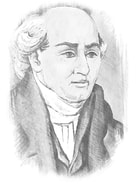 William Carey
William Carey
“A Christian minister is a person who in a peculiar sense is not his own; he is the servant of God, and therefore ought to be wholly devoted to him. By entering on that sacred office he solemnly undertakes to be always engaged, as much as possible, in the Lord's work, and not to choose his own pleasure, or employment, or pursue the ministry as a something that is to subserve his own ends, or interests, or as a kind of bye-work. He engages to go where God pleases, and to do, or endure what he sees fit to command, or call him to, in the exercise of his function. He virtually bids farewell to friends, pleasures, and comforts, and stands in readiness to endure the greatest sufferings in the work of his Lord, and Master.”
― William Carey, An Enquiry into the Obligations of Christians to Use Means for the Conversion of the Heathens In Which the Religious State of the Different Nations of ... of Further Undertakings, Are Considered
― William Carey, An Enquiry into the Obligations of Christians to Use Means for the Conversion of the Heathens In Which the Religious State of the Different Nations of ... of Further Undertakings, Are Considered
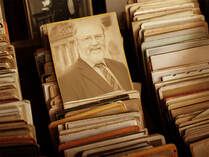 NT Wright Files
NT Wright Files
If you want to know who God is, look at Jesus. If you want to know what it means to be human, look at Jesus. If you want to know what love is, look at Jesus. If you want to know what grief is, look at Jesus. And go on looking until you’re not just a spectator, but you’re actually part of the drama that has him as the central character. -N.T. Wright











